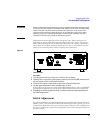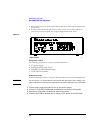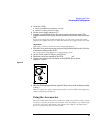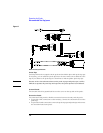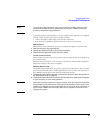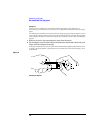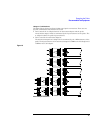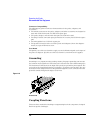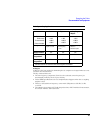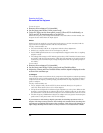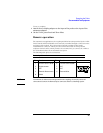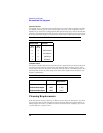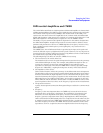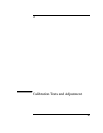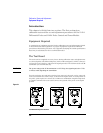
19
Operating the Probe
Recommended Test Equipment
Probe System Coupling Functions
dc Reject
dc Reject is the best method of eliminating the dc component of a signal when dc is not
a factor in the measurement.
The key characteristics are:
• The low-frequency component (from dc to the selected corner frequency) is
automatically nulled by the dc reject circuitry.
• Probe CMRR specifications are not compromised as happens when the ac coupling
adapter is uses.
• There is a selectable low frequency corner with -3dB points at 0.05 Hz, 0.5 Hz,
or 5.0 Hz.
• The voltage reject range is ±20 V with the probe alone, ±200 V with the 10x attenuator,
and ±500 V with the 100x attenuator.
dc offset dc Reject ac Coupling
Adapter
dc Blocked
Probe alone
Probe with 10x
Probe with 100x
± 20 V
± 200 V
± 500 V
± 20 V
± 200 V
± 500 V
± 20 V
± 500 V
± 500 V
Set-up needed
Adjust offset to put
signal on screen
Select DC Reject
low-frequency
corner
Attach ac Coupling
adapter to
differential probe
Remote Control? Yes
1
Yes
1
No
CMRR
degradation?
No No Yes
Low-frequency
degradation?
No Yes Yes
1
Isolated external dc reference and control signals are needed



